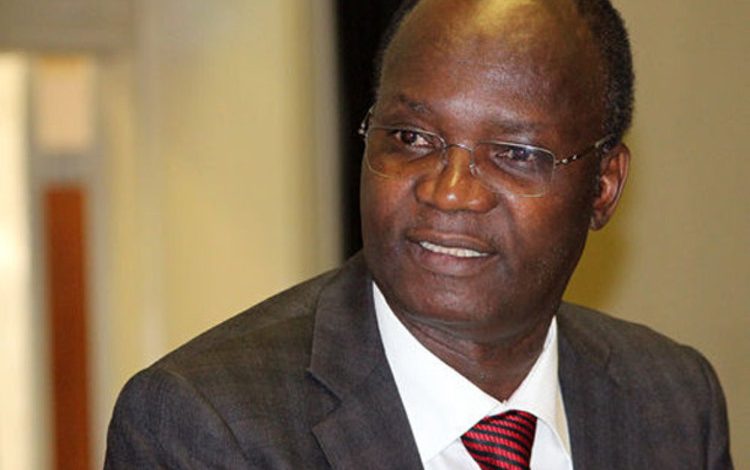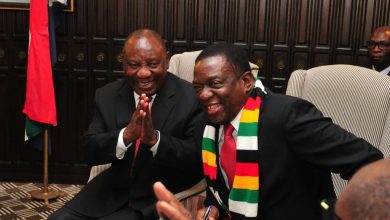Eye on the vote: Counting notes for polling agents

By Jonathan Moyo
MOST Zimbabweans believe that elections in the country are rigged but they don’t know how the rigging is done, yet they think there is one rigging formula that the ruling authorities apply to every election.
This is what I understand from the endless questions I often get as a former Cabinet Minister “who should know”, apparently because of my role as a former ZANU PF election campaign manager or so-called strategist who used to write the party’s election manifestos and who participated in the charged controversial 2002 presidential election campaign as Minister of Information and ZANU PF Deputy Secretary for Information and Publicity.
The widespread assumption that former or even current Cabinet Ministers or ZANU PF politburo members ex officio know something useful about goings on in the corridors of management of elections by the Zimbabwe Electoral Commission [ZEC] is understandable but in fact wrong. The true position is that the vast majority of former and current Cabinet Ministers or politburo members are actually ignorant of “the electoral system” and what goes on in it.
Knowledge of the management of the electoral system is a product of either inside experience or painstaking research across elections. I have studied and published on electoral politics in Zimbabwe since 1985.
In light of the commonplace fears and rumours of election rigging in Zimbabwe, which is believed to be widespread in every election, what are some of rigging methods that are practiced in Zimbabwe, and which polling agents should watch out for?
To unpack, identify and understand rigging and its possibilities, one must first define an election, in a manner that lends itself to research.
An election is a rule-bound process which is a legal event, and as such its result is at law presumed to be valid.
This presumption of the validity of an election is based on the expectation that an election is organised, run or conducted and its result determined in accordance with existing electoral law.
There are four sources of election law and rules: the Constitution; the Electoral Act [Chapter 2:13], as amended; Statutory Instrument 21 of 2005 (Electoral Regulations), as amended, and the ZEC Electoral Officers Manual, as modified.
Whereas political parties, election candidates, agents and observers are expected to understand that an election is a rule-bound political process which is a legal event, the fact is that most do not. This fact is – the ignorance of polling agents and election observers – is the zone of opportunity for rigging.
This is because simply put, rigging is the manipulation and corruption of one rule or another – meaning corruption of the law – to affect the result towards a desired or targeted outcome.
Broadly, there are two types of election rigging.
One is anticipatory rigging, whose target is the intimidation of the voter to induce a particular electoral outcome by manipulating the political or electoral environment.
The other is constructive rigging, whose target is the manipulation of the electoral process as a legal event to affect the election result.
The modalities or tools used in either of these two types of election rigging, including the choice and scale of each type, depend on the situation and circumstances of the election in question.
Whereas anticipatory rigging focuses on the political environment to target the voter, constructive rigging targets the election as a political process which is a legal event to technically manipulate the law, rules, processes or procedures to change the result of the election to achieve a predetermined outcome. Constructive rigging has the intent of affecting an election result in order to change its outcome one way or another through an illegal act of commission or omission by polling officers.
An example of constructive rigging, which has become particularly prevalent in the Zimbabwean electoral experience in recent years, is the manipulation of ballot papers by polling officers during the counting of votes.
During the voting counting process in order to determine the result of an election at the polling station – it could be for a council ward, a parliamentary constituency or presidential election – the valid ballot papers in each ballot box are counted by a Zimbabwe Electoral Commission [ZEC] counting officer in what the electoral body calls “lots” and “bundles”.
A lot consists of 10 ballots and a bundle consists of 100 ballots or 10 bundles of 10.
Where polling agents are absent or functionally illiterate – which is common nowadays, as exemplified by the absence of MDC-Alliance polling agents from 500 polling stations in the 2018 harmonised elections – ZEC counting officers can play games either as part of a predetermined conspiracy or out of their own mischief.
A common trick is to undercount the votes of a targeted candidate by putting more than 10 votes in that candidate’s lots, or thus more than 100 votes in their bundle, while overcounting the votes of the favoured candidate by putting fewer than 10 votes in his or her lots, and therefore less than 100 in their bundle.






